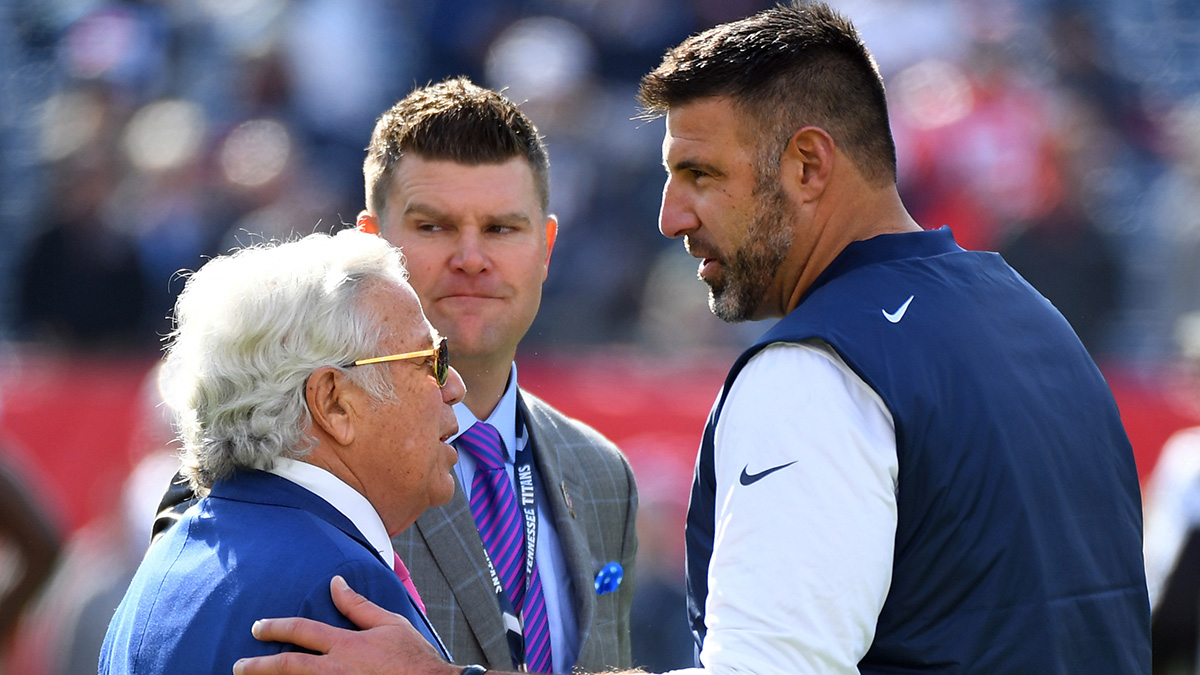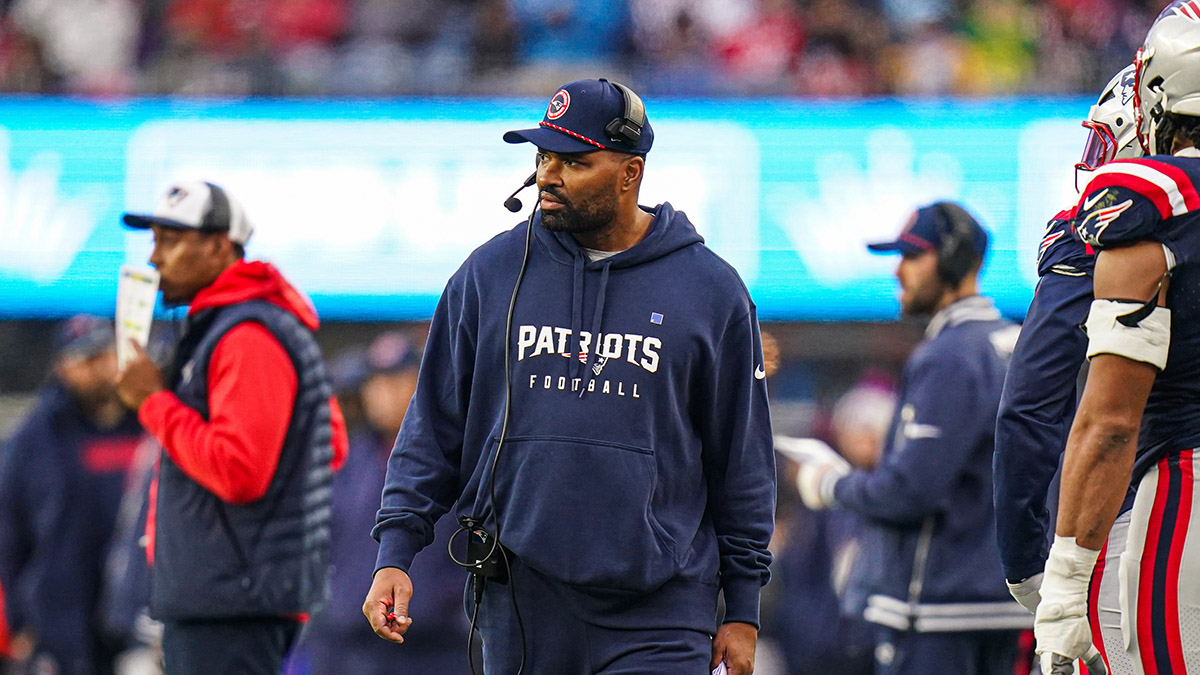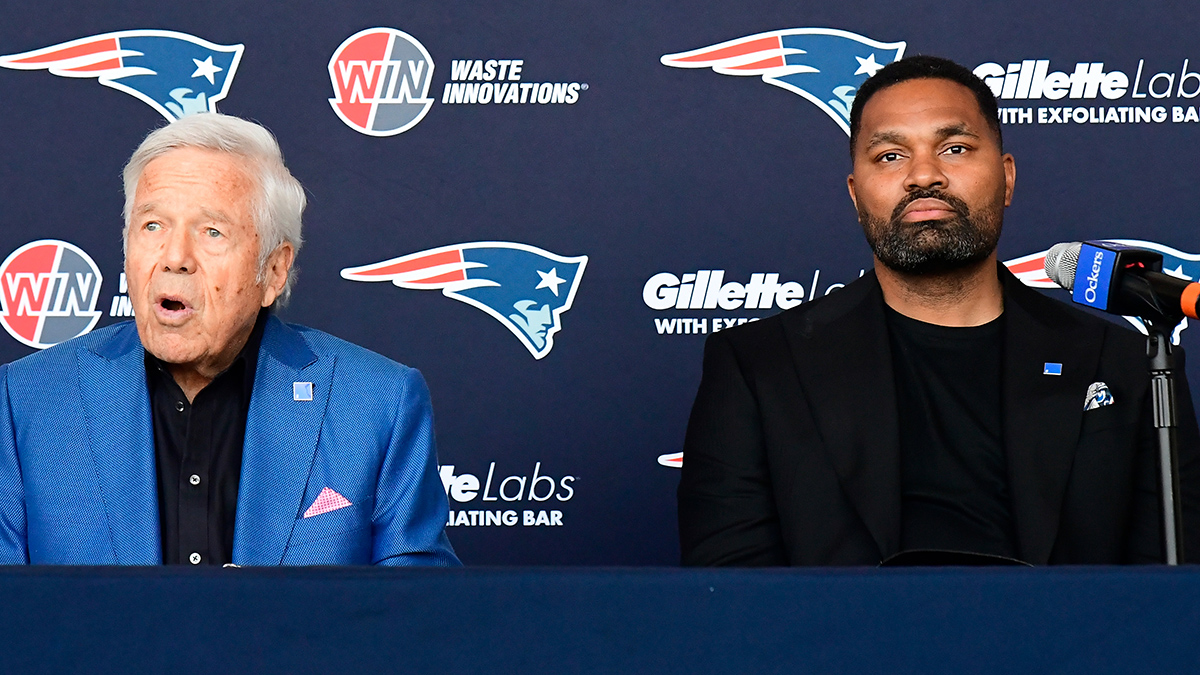Albert Breer shares the latest on Mike Vrabel’s future as a head coach in the NFL and breaks down the potential ways Patriots ownership could go about improving the organization this offseason.
Questionable timeout usage and bad clock management in general have been hot topics in the NFL this season.
One of the most glaring examples happened on Thanksgiving when Chicago Bears head coach Matt Eberflus cost his team valuable seconds at the end of its game versus the Detroit Lions. The Bears lost, and Eberflus was fired the next day.
And then on Sunday night, Falcons head coach Raheem Morris didn't use all of his timeouts to help rookie quarterback Michael Penix Jr. as he was trying to lead Atlanta down the field for a potential game-winning field goal. The Falcons had to settle for a 56-yard field goal attempt at the end of regulation, which fell short. They ended up losing in overtime, thus weakening their playoff chances.
Former New England Patriots head coach Bill Belichick was asked about these clock management blunders during his weekly Monday appearance on ESPN's The Pat McAfee Show.
Belichick called it "mystifying." The eight-time Super Bowl champ explained that if he had three timeouts for a two-minute drill, the general rule he followed was using the first timeout between two minutes and one minute, the second timeout between one minute and 30 seconds, and the third timeout under 30 seconds.
"You really didn't want to have two timeouts with 20 seconds left. And you didn't want to use two of your timeouts in the first 30 seconds of a two-minute situation where you didn't need to," Belichick said.
More Patriots coverage
Belichick also told McAfee a fascinating story about changing the way he used timeouts starting around 2013 or 2014 when former Patriots quarterback Tom Brady told his coach he preferred to have more time on the clock than more timeouts.
“I had always wanted to save it for the end,” Belichick said of his timeouts. “Especially if you need a field goal, so you didn’t have to run the no-huddle field goal team on. You could just take a timeout and go in there and kick it. But Brady said, ‘Look, I’d rather have more time and less timeouts because it gives me more options, than less time and a timeout. So let me handle it. If I screw it up, then that’s my fault and you can take it away from me. But I would rather you take a timeout with 27 seconds and give me more time to do something with, than run a play with 27 seconds, and now we go to 13 seconds and we have one timeout. I’d rather have 27 seconds and no timeouts than 12 seconds and one timeout.’
“It puts a lot of responsibility on the quarterback, but Tom wanted that and I felt very confident in giving it to him. So basically, we fundamentally made that switch. I would take that third timeout a lot of times in the 30-second range even though it had gone against a little bit of my previous thinking, because Tom felt more comfortable managing the game that way and he did it very well. So I was more than happy to give him that responsibility because he could manage it.”
Most quarterbacks probably wouldn't be given this kind of freedom, but when you have a quarterback with the talent and high football IQ that Brady had, it definitely makes sense. It's also an example of a head coach and quarterback being on the same page.
One of the reasons why the Patriots were so successful for 20 years with Belichick and Brady at the helm was because they consistently executed end-of-game situations at such a high level, and a lot of that was expert usage of timeouts and managing the clock.
The difference between good and poor clock management is often enough to change the outcome of a game. From 2001 through 2019, the Patriots had a league-best 86-43 record (.667 win percentage) in one-score games. They also went 5-3 in Super Bowl games decided by one score. Belichick not calling a timeout right before the Malcolm Butler interception when the Seattle Seahawks appeared to be in disarray was one of the best coaching decisions of all time.
The best quarterback/head coach combo today is Patrick Mahomes and Andy Reid on the two-time defending Super Bowl champion Kansas City Chiefs, and it's not a coincidence that K.C. is 11-0 in one-score games this season.




